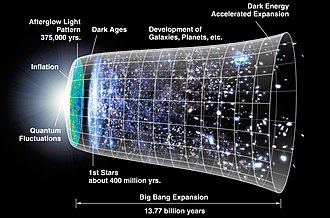Meaning of life



Meaning of Life
The meaning of life is a philosophical and existential question concerning the significance of life or existence in general. This question has been asked for centuries and has been addressed in various ways by different cultures, religions, philosophies, and individual thinkers. It touches upon many aspects of human inquiry, including religion, philosophy, psychology, and science, seeking to understand the purpose or value of life or existence.
Philosophical Perspectives[edit]
Philosophical perspectives on the meaning of life are diverse, ranging from the assertion that life inherently has no meaning to the idea that the meaning of life is to seek happiness or to live in accordance with certain ethical standards.
Existentialism[edit]
Existentialism is a philosophical theory that emphasizes individual freedom, choice, and personal responsibility. Existentialists, such as Jean-Paul Sartre and Friedrich Nietzsche, argue that life has no predetermined meaning, and it is up to each individual to create their own meaning through their choices and actions.
Nihilism[edit]
Nihilism is the philosophical viewpoint that life is without objective meaning, purpose, or intrinsic value. Nihilists, such as Friedrich Nietzsche, believe that no action, no matter how significant, ultimately matters in the grand scheme of the universe.
Stoicism[edit]
Stoicism is an ancient Greek philosophy that teaches the development of self-control and fortitude as a means of overcoming destructive emotions. Stoics believe that the meaning of life is to live in accordance with nature and reason, accepting what one cannot change.
Religious Perspectives[edit]
Religious perspectives on the meaning of life are varied and often tied to the belief in a higher power or a spiritual realm. These perspectives typically involve the fulfillment of a divine purpose or following a set of religious principles.
Buddhism[edit]
In Buddhism, the meaning of life is closely tied to the concept of suffering and the cessation of suffering. The ultimate goal is achieving Nirvana, which is the liberation from the cycle of rebirth and suffering.
Christianity[edit]
Christianity teaches that the meaning of life is to love and serve God and to love and serve others. This perspective is often associated with living according to the teachings of Jesus Christ and striving for eternal life with God.
Islam[edit]
In Islam, the purpose of life is to worship Allah and lead a life in accordance with the Quran and the Hadith. Muslims believe that life on earth is a test, and the fulfillment of one's religious duties will lead to paradise in the afterlife.
Scientific Perspectives[edit]
From a scientific perspective, the meaning of life can be explored in terms of biological and cosmological significance. Evolutionary biology, for example, might suggest that the purpose of life is to survive and reproduce, passing on one's genes to the next generation.
Conclusion[edit]
The question of the meaning of life remains one of the most profound and elusive questions faced by humanity. While there may not be a single, universally accepted answer, the quest for meaning continues to inspire a wide range of philosophical, religious, and scientific inquiries.

This article is a philosophy-related stub. You can help WikiMD by expanding it!
Ad. Transform your life with W8MD's Budget GLP-1 injections from $75


W8MD offers a medical weight loss program to lose weight in Philadelphia. Our physician-supervised medical weight loss provides:
- Weight loss injections in NYC (generic and brand names):
- Zepbound / Mounjaro, Wegovy / Ozempic, Saxenda
- Most insurances accepted or discounted self-pay rates. We will obtain insurance prior authorizations if needed.
- Generic GLP1 weight loss injections from $75 for the starting dose.
- Also offer prescription weight loss medications including Phentermine, Qsymia, Diethylpropion, Contrave etc.
NYC weight loss doctor appointmentsNYC weight loss doctor appointments
Start your NYC weight loss journey today at our NYC medical weight loss and Philadelphia medical weight loss clinics.
- Call 718-946-5500 to lose weight in NYC or for medical weight loss in Philadelphia 215-676-2334.
- Tags:NYC medical weight loss, Philadelphia lose weight Zepbound NYC, Budget GLP1 weight loss injections, Wegovy Philadelphia, Wegovy NYC, Philadelphia medical weight loss, Brookly weight loss and Wegovy NYC
|
WikiMD's Wellness Encyclopedia |
| Let Food Be Thy Medicine Medicine Thy Food - Hippocrates |
Medical Disclaimer: WikiMD is not a substitute for professional medical advice. The information on WikiMD is provided as an information resource only, may be incorrect, outdated or misleading, and is not to be used or relied on for any diagnostic or treatment purposes. Please consult your health care provider before making any healthcare decisions or for guidance about a specific medical condition. WikiMD expressly disclaims responsibility, and shall have no liability, for any damages, loss, injury, or liability whatsoever suffered as a result of your reliance on the information contained in this site. By visiting this site you agree to the foregoing terms and conditions, which may from time to time be changed or supplemented by WikiMD. If you do not agree to the foregoing terms and conditions, you should not enter or use this site. See full disclaimer.
Credits:Most images are courtesy of Wikimedia commons, and templates, categories Wikipedia, licensed under CC BY SA or similar.
Translate this page: - East Asian
中文,
日本,
한국어,
South Asian
हिन्दी,
தமிழ்,
తెలుగు,
Urdu,
ಕನ್ನಡ,
Southeast Asian
Indonesian,
Vietnamese,
Thai,
မြန်မာဘာသာ,
বাংলা
European
español,
Deutsch,
français,
Greek,
português do Brasil,
polski,
română,
русский,
Nederlands,
norsk,
svenska,
suomi,
Italian
Middle Eastern & African
عربى,
Turkish,
Persian,
Hebrew,
Afrikaans,
isiZulu,
Kiswahili,
Other
Bulgarian,
Hungarian,
Czech,
Swedish,
മലയാളം,
मराठी,
ਪੰਜਾਬੀ,
ગુજરાતી,
Portuguese,
Ukrainian